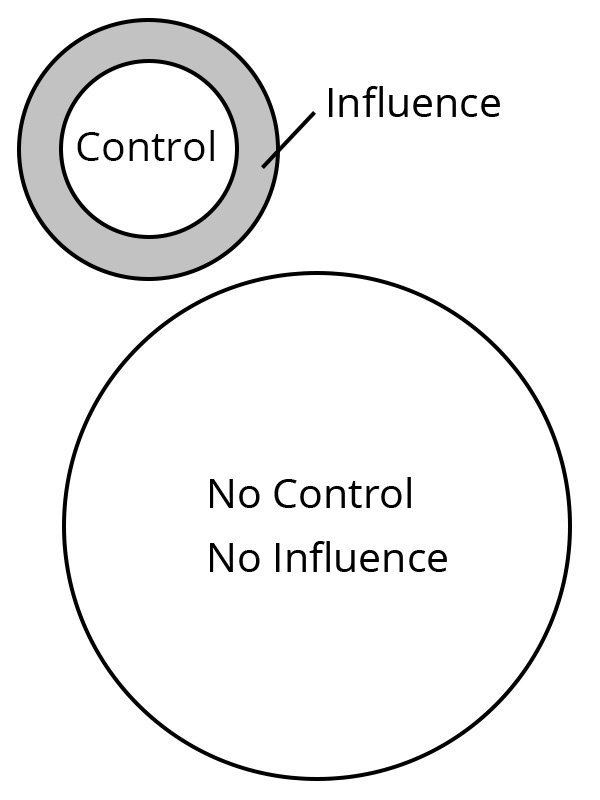Communication Skills: Abc Principle
Communication Skills: ABC Principle
Your communication should always be ABC:
A = Accurate
B = Brief
C = Clear
A: How to make your communication more Accurate.
Accuracy means two things:
- Accurate in the sense of being factually accurate
- Accurate in the sense of using accurate grammar
Accurate facts: Always check your facts. Check your sources. The world is full of fake-news and the responsibility is on you to ensure that what you say is factually accurate.
Accurate grammar: Your facts may be accurate, but your grammar may be ambiguous. For example:
- When I nod my head, that's the signal for you to hit it.
- I took my dog and my wife into town so I could have her deloused.
You need to be sure your writing is accurate in both content and grammatical structure.
B: Be Brief
The message must be sufficiently brief to allow the listener or reader to "take it in".
If you present too much information, then most people will be put off.
C: Make Sure You are Clear
Clear means clearly defined. All concepts must be clearly defined.
There are three ways to clearly define your meaning:
1. By using numbers:
Rather than saying, "taxes are too high". Say "VAT is currently 20% and it should be reduced to 17.5%"
2. By using definitions:
Give definitions of ambiguous words. For example; "Power" is a measure of the amount of work done in a unit of time.
3. By using images:
Often a picture is worth a thousand words.
For example, have a look at the diagram below and I think you will immediately see what it means. But to explain without an image, would be quite tricky.

Summary
Your communication should always be:
A = Accurate: Facts and grammar
B = Brief: Edit all non-essentials
C = Clear: By giving numbers, definitions or images.
Definition: ABC principle
The ABC principle is a business communication rule that says each message must be Accurate, Brief and Clear. You check facts and grammar, cut extra words, and define ideas with numbers, plain words or pictures. When you use all three steps in any spoken or written message, people understand quickly and trust you.
Show CG4D Definition
- Checks facts and grammar for truth and correctness
- Cuts out all non-essential words to keep the message short
- Defines ideas with numbers, plain words or pictures so the meaning is clear
- Applies to every spoken and written message in work settings
Article Summary
Use the ABC principle each time you speak or write: check facts and grammar, trim every extra word, and define ideas with numbers, images or plain labels. Accurate, brief, clear messages travel fast and win trust.
Frequently Asked Questions
Here are some questions that frequently get asked about this topic during our training sessions.
What does the ABC principle stand for in communication?
Why is accuracy important in messages?
How can I check my facts quickly?
How short is 'brief' in business writing?
What techniques make a message clear?
Can I use the ABC principle when speaking?
What is an example of using numbers for clarity?
Thought of something that's not been answered?
Did You Know: Key Statistics
The 2024 State of Business Communication report by Grammarly and The Harris Poll shows that office staff now spend 72% of their working week sending or reading messages. Project.co’s 2023 study found that 68% of workers lost time last week because a message was not clear.Blogs by Email
Do you want to receive an email whenever we post a new blog? The blogs contain article 5-10 minutes long - ideal for reading during your coffee break!
Further Reading in Communication - Clear Communication
-
Communication Skills for Sales People
Boost revenue by sharpening communication skills. Learn need analysis, objection handling, negotiation and closing techniques in our training guide. Act today.
Read Article > -
Communication Skills Training (Advanced)
Learn to tell true, false, possible and arbitrary statements apart. Master evidence based communication and make quicker, safer choices at work and home.
Read Article > -
What are good communication skills?
Learn good communication skills fast: define unclear words, match audience knowledge and trim data overload. Boost clarity and test yourself in our quick quiz.
Read Article > -
Six Step Formula for Investigative Interviews
Use a six-step investigative interview method: listen, take notes, probe answers, flag contradictions, set the timeline and capture a narrative as evidence.
Read Article > -
How to Start a Presentation
Learn how to start a presentation with confidence. Use a smile, clear timing, questions, stories or bold views to grab attention and avoid common mistakes.
Read Article >
Looking for Communication Skills Training?
If you're looking to develop your Clear Communication Skills, you may find this Communication Skills Training Course beneficial:
Open Training Course Pricing and Availability
Next Open Course Running tomorrow in Leeds City, places available






